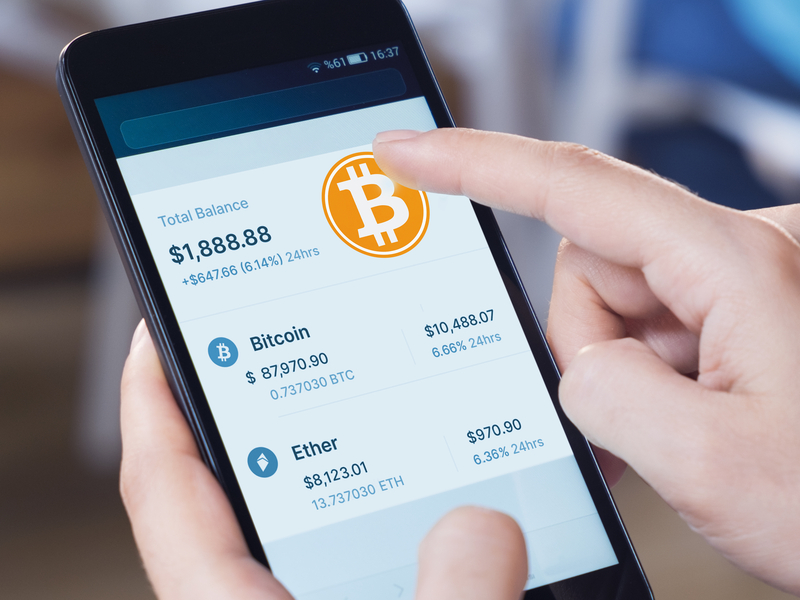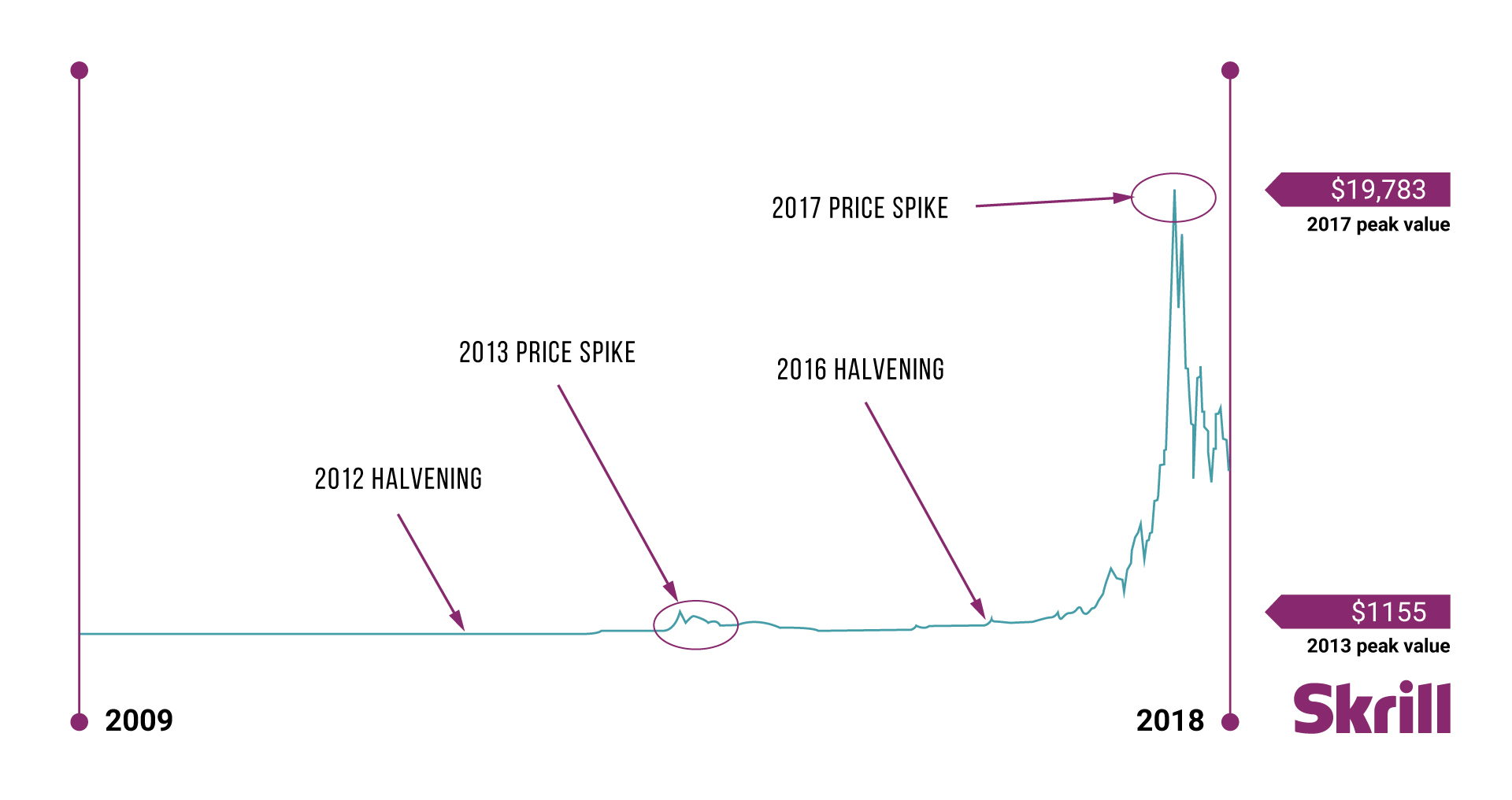Don’t invest unless you’re prepared to lose all the money you invest. This is a high-risk investment and you should not expect to be protected if something goes wrong. Take two minutes to learn more.
This article is not intended to be financial, investment or trading advice. This article is for information and solely for education purposes. It does not protect against any financial loss, risk or fraud.
Today, there are over 6,000 different cryptocurrencies. With a total market cap of over €300bn, more and more people are getting involved in the world of crypto trading and investing.
But buying and selling crypto successfully means getting familiar with some key terms and being aware of the key risks. Particularly those of the most widely used cryptocurrencies today – and their abbreviations.
Here, we give you the rundown on some of the most common crypto abbreviations you’ll need to know.
Cryptocurrency coin abbreviations
BTC – Bitcoin
The original, and most well-known of all the cryptocurrencies. Today, Bitcoin has the largest market cap of any cryptocurrency. It’s also accepted by a growing number of online and offline merchants around the world. It was first created in 2009 as open-source software by a still-anonymous source.
LTC – Litecoin
Litecoin was launched in 2011 as an alternative to Bitcoin. Like other cryptocurrencies, Litecoin is an open-source, global payment network. Although Litecoin is like Bitcoin in many ways, it has a faster block-generation rate and hence offers a faster transaction confirmation time.
ETH – Ethereum
Launched in 2015, Ethereum is a decentralized software platform that enables smart contracts and decentralized applications to be built and run without any downtime, fraud, control, or interference from a third party. It is a fork, i.e. modified version, of Ethereum Classic.
ETC – Ethereum Classic
Ethereum Classic (ETC) is the original Ethereum blockchain and allows for the implementation of decentralized applications and smart contracts. The ETC blockchain is truly immutable and will never be altered.
XRP – Ripple
Ripple is a real-time global settlement network that offers certain and low-cost international payments. Launched in 2012, Ripple enables banks to settle cross-border payments in real time, with end-to-end transparency, at lower costs. Uniquely, all of Ripple's XRP tokens were "pre-mined" before the currency was launched, meaning that there is no creation or mining of XRP over time, only the introduction and removal of XRP from the market supply according to certain guidelines.
BCH – Bitcoin Cash
Bitcoin Cash has an important place in history because it is one of the earliest and most successful forks of the original Bitcoin.
EOS – Eos
Eos is one of the newest digital currencies. Launched in June 2018, EOS is designed after Ethereum. That means it also offers a platform on which developers can build decentralized applications.
XLM – Stellar
The Stellar network’s native token, lumens, serves as a bridge that makes it less expensive to trade assets across borders. All of this aims to challenge existing payment providers, who often charge high fees for a similar service.
TEZ – Tezos
Tezos is a decentralized, open-source blockchain network that can execute peer-to-peer transactions and serves as a platform for deploying smart contracts. The native cryptocurrency for the Tezos blockchain is the 'tez' or 'tezzie'.
DAO – Dash
Dash is an altcoin that was forked from the original Bitcoin protocol. It is also a decentralized autonomous organization (DAO) run by a subset of its users, which are called "masternodes". The currency permits transactions that are untraceable.
ZRX – 0x Coin
0x is an open protocol on the Ethereum Blockchain. It enables the peer-to-peer exchange of assets on the Ethereum blockchain.
KNC – Kyber Network
Kyber is an Ethereum-based decentralized exchange that focuses on aggregating liquidity and facilitating swaps for ether and ERC-20 tokens.
Other common crypto abbreviations
There are a number of other crypto abbreviations you might discover when reading blog posts and forums about crypto. Here are some of the most commonly used ones.

ETF/ETP – Exchange Traded Fund or Exchange Traded Product
OTC – Over the Counter
CEX – Centralized Exchange
DEX – Decentralized Exchange
PnD – Pump-and-Dump
ICO – Initial Coin Offering
ITO – Initial Token Offering
STO – Securities Token Offering
MCAP – Market Capitalization
BIP – Bitcoin Improvement Proposal
DAO – Decentralized Autonomous Organization
FA – Fundamental Analysis
MACD – Moving Average Convergence Divergence
MoE – Medium of Exchange
P2P – Peer to Peer
PoA – Proof of Authority
PoB – Proof of Burn
PoD – Proof of Developer
PoS – Proof of Stake
PoW – Proof of Work
SC – Smart Contract
Keep learning
Now that you know some of the basic abbreviations in the world of crypto, you’re one step closer to trading and investing.
When you’re ready to get started, set up an account with Skrill. With over 100 deposit methods, there are several ways to buy and sell cryptocurrency. Better yet, transactions mean you can take advantage of price movements as and when they happen.
Cryptocurrencies are complex products with high price volatility. They are unregulated, without consumer or financial protections. Only risk what you can afford to lose.
For more information, please go to the Skrill Cryptocurrency Risk Statement and the Skrill Cryptocurrency Terms of Use.





